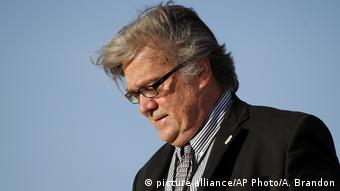Beijing has expressed “strong displeasure” with the fact that Washington has started an official investigation about infringement of intellectual property rights by China. The theme deals with the economy for decades.

On Friday, the US trade representative announced Robert Lightizer a “thorough investigation of such Chinese laws, policies and practices” that “may be American infringe on intellectual property rights, as well as American Innovation and technological development.” Explosiveness contains the announcement of the fact that the investigation is carried out in the framework of the so-called Section 301 of the US trade act of 1974. The US is granted the President the authority to take unilaterally the customs duties or other measures in order to protect U.S. companies from “unfair trade practices” of other countries.
The investigation should come about after a year, the result of such breaches as, would be again the risk of an American-Chinese trade war in space, the Trump and some of his advisors, such as (the now retired) Steve Bannon certainly consider or even demand.
The Ministry of Commerce in Beijing, stated on Monday that the American step is sending “the wrong Signal” and would be condemned by the international community. “The failure to respect the rules of the WTO by the US and the recourse to national law, to trade, to initiate investigations against China, are irresponsible.” The American criticism of China was not “objectively,” said the spokesman.

Trump’s chief strategist Stephen Bannon had to go, but he advocated a trade war with China could be yet to come
World Champions in the Copying and theft?
However, China is generally considered to be the world champion in copying of technologies, industrial Design and business models. This need not always be a clear case of intellectual property theft or counterfeiting. Often there are open copies, such as China on the i-Phone from the US company Apple, with a private and cheaper “HiPhone” responded. And also companies like Xiaomi, Weibo and Youku are considered to be copies of the American models, Apple, Twitter, and Youtube.
Open Copy is the one that intellectual property theft is the other. From the American side, the resulting losses are estimated at up to 600 billion euros. An enormous sum, but nevertheless, so far, neither the withdrawal of foreign companies from the key Chinese market is still to harsh sanctions.
From a German point of view, the Problem of intellectual property in China-business is ambivalent, as Stefanie Schmitt from the Beijing office of the German explained to foreign trade Agency, German Trade and Invest (GTAI): “In the most recent survey of the German chamber of Commerce in China, it was found that for 63 percent of the companies that have placed their China plans, first on ice, inadequate protection of intellectual property was crucial. When questioned, however, in China firms according to their main challenges, the protection of intellectual property is only 10. . As other topics are in the foreground, as are the rising labour costs, lack of skilled personnel, lower economic growth and increased competition by local providers.”

Stefanie Schmitt from GTAI: China’s laws on Copyright protection, you should take advantage of
“Unwanted Technology Outflows”
The American China expert and business lawyer Rebecca Liao believes that American and European companies would still have to proceed more cautiously if they wanted to penetrate the Chinese market. The reason is the clear invitation of the Chinese government to domestic companies to seek technology transfer by foreign companies.
Technology transfer and intellectual property theft does not seem to distinguish always clear-cut. “Afraid of unwanted technology outflows, there is always,” says Stefanie Schmitt from GTAI. “In the case of Joint Ventures, is particularly acute, because you are working directly with a Chinese Partner and do not know whether the building a few hundred yards further on, a similar factory.” Some of the entrepreneurs had bought from its Joint-Venture and wholly-owned subsidiary established after the 1986 Beijing has allowed for certain industries.

Joint ventures for foreign car investors is the Norm. But the cooperation also has its pitfalls
Policy of exerting pressure on foreign companies
A solution that doesn’t fit for all companies and industries, such as Agatha Scratch, a China expert at the European Council on Foreign Relations (ECFR) in London, explains: “At its core, it comes to the requirements of the Chinese government, which force foreign companies to share their technologies, either with the state authorities (for national security reasons), or partnerships with local companies in certain industries, including the transfer of technology.” Thus, the offence of theft of intellectual property was not yet given, says Kratz, but “pressure on foreign companies to share their technologies and open up to you.”

Chinese Acquisitions, such as the robot manufacturer Kuka in the future, only in the case of equal treatment of European investors?
Legal and policy levers beyond trump’s trade war
Despite all the lawsuits, experts say that China has strengthened its laws for the protection of patents, trademarks and Copyrights in the past few years. “The Chinese government is aware that foreign companies about the theft and the incorporation of intellectual property unhappy,” says lawyer Rebecca Liao. “And you know that this is also a Problem among Chinese companies.”
Stefanie Schmitt says: “It is only recommend to all the legal possibilities that the Chinese law provides that all use, to register designs and patents, you can somehow log and report violations and to pursue legal. Whether this always leads to success, is another question. But it is possible.”
On the political level, Agatha Scratch looks to be a promising approach as Trumps threat of punitive duties, if Western governments insist on greater Opening of the Chinese market, and less restrictive conditions for investors. Otherwise, the risk to Beijing that the EU and the United States, with its relatively open markets, Chinese investments more closely, as to do it you have to start now already.